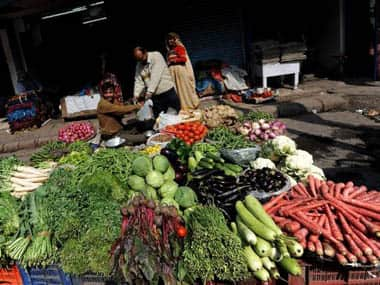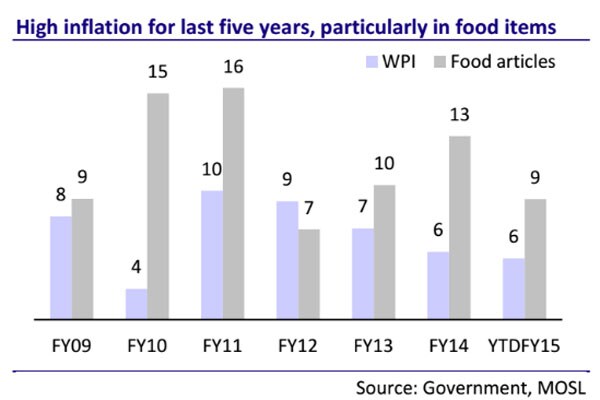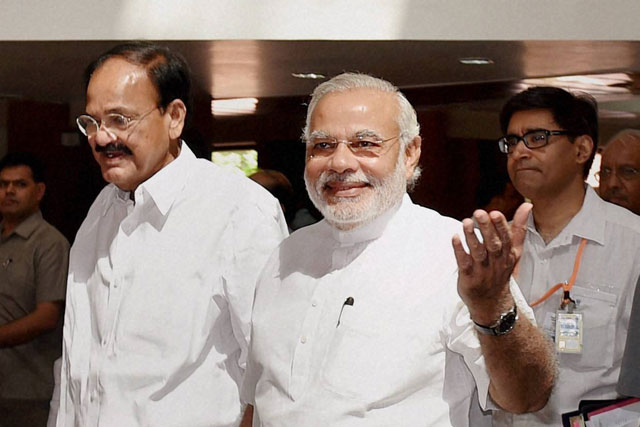For a party that came to power promising to end spiralling inflation, the BJP must have known exactly how the Congress felt over the last few years when the first day of the budget session of the Lok Sabha was completely disrupted by protests over rising prices of food, fuel and railways.
Taking over with the promise of reviving the economy, the Narendra Modi-led BJP government hasn’t had it easy. Having to deal with a delayed monsoon which has led to rising food prices and a fuel bill bloated by external factors doesn’t help when you’re expected to turn an economy around.
The government has taken a slew of measures to tackle food inflation. The Essential Commodities Act has been invoked to curb food prices and hoarders have been arrested. Burdened with a high fuel bill, the government hasn’t really bitten the bullet yet, but has made a start by hiking the price of non-subsidised LPG cylinders and jet fuel, even while continuing with the moderated rise in diesel prices.
[caption id=“attachment_79163” align=“alignleft” width=“380”]
 Representational Image. AFP[/caption]
Representational Image. AFP[/caption]
All have been met with varying degrees of dissent, but the government has perhaps faced the most flak when it went through with the decision to raise railway fare prices for passenger and freight. While the passenger fare hike was partially rolled back forsuburban rail travel in cities like Mumbai, long distance travel and freight costs remain higher.
Despite the din now being raised by the UPA in the Lok Sabha today, their argument stands on rather shaky ground given that they were in power until a little under two months ago. A report by brokerage Motilal Oswal shows that food inflation has constantly outpaced the wholesale price index since 2009:

Unfortunately other planned reforms that the Modi government has planned aren’t going to tackle ‘price rise’ either. The government plans to bring about reform in coal, oil and gas all of which are expected to bring higher prices in the short run, but could in turn spur the economy into a high growth path again.
As Firstbiz editor R Jagannathan had pointed out earlier , there’s little scope for the BJP to shy away from taking decisions to reduce the existing distortions across various markets like agriculture and fuel that were brought out by the UPA government like NREGA and fertilisers.
“It is not clear how fast, and even whether, the NDA government under Modi will move to correct the distortions in various markets. Even if it starts reducing subsidies and freeing the markets for labour, land, fuel (including gas) food and fertiliser, the short-term consequences are a spike in inflation,” he noted.
Topping them all is the looming threat of poor monsoon. A drought will limit the government’s ability to rein in its expenditure and in turn its fiscal deficit. Production of edible oil and oil seeds are likely to be affected too, which would mean the country will have to depend on imports. An increase in imports will have an impact, though marginal, on the current account deficit as well.
All in all, only a magic wand can help the economy from entering a vicious circle. Other wise, Modi will have to grin and just bear it until the situation gets better, while the Congress behaves as if it is from another planet.
)